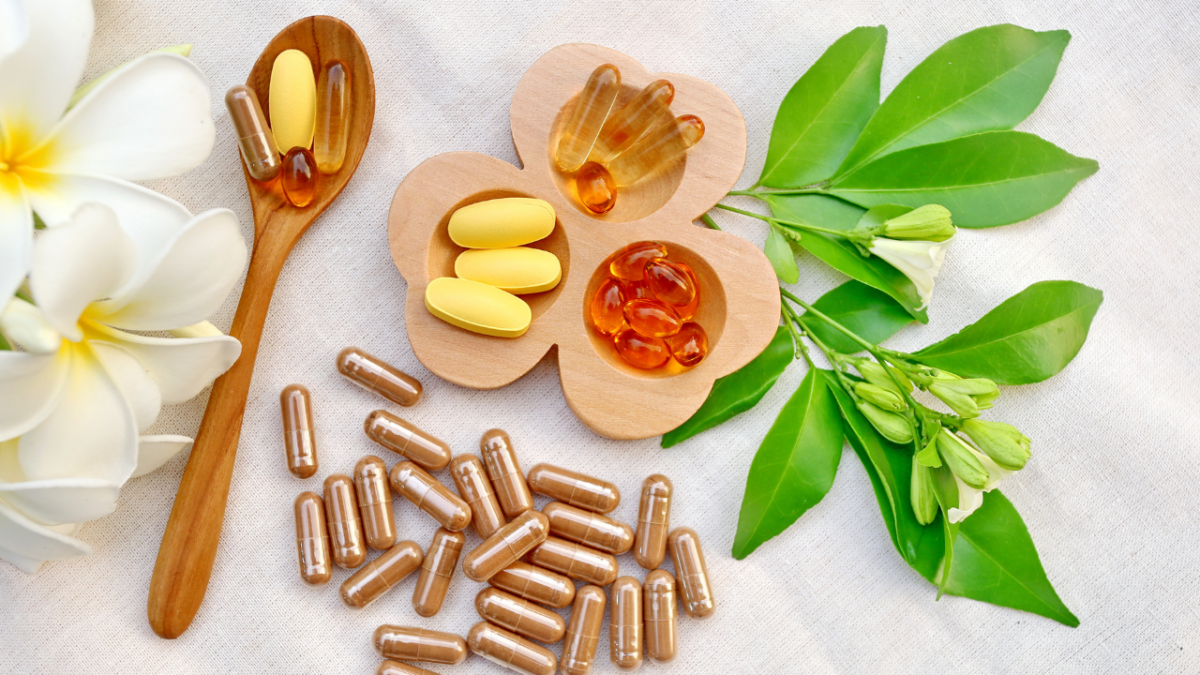Beat Menopause: 10 Must-Have Vitamins for Every Woman

Menopause is often accompanied by various symptoms that can impact a woman’s daily life. Fatigue, mood swings, and cognitive changes are common during this phase, but the right vitamins can help mitigate these effects. By incorporating specific vitamins into your diet, you can enhance your energy levels, mood, and overall productivity. Here are ten essential vitamins to focus on during menopause.
Vitamin D: The Sunshine Vitamin
Vitamin D is crucial for overall health, particularly for bone health and immune function. During menopause, the risk of osteoporosis increases due to the decline in estrogen levels. Vitamin D helps in the absorption of calcium, maintaining bone density and strength. Additionally, it plays a role in mood regulation, reducing the risk of depression and enhancing overall well-being.
Natural sunlight is the best source of Vitamin D. However, during the winter months or in areas with limited sunlight, you can obtain Vitamin D from foods such as fatty fish (salmon, mackerel), fortified dairy products, and egg yolks. Supplements are also available to ensure adequate intake.
Vitamin B6: The Mood Booster
Vitamin B6, also known as pyridoxine, is essential for brain health and the production of neurotransmitters that regulate mood, such as serotonin and dopamine. It helps alleviate mood swings, irritability, and depression associated with menopause, thus enhancing productivity.
Rich sources of Vitamin B6 include poultry, fish, potatoes, chickpeas, bananas, and fortified cereals. Including these foods in your diet can help stabilize mood and improve cognitive function.
Vitamin B12: The Energy Enhancer
Vitamin B12 is vital for red blood cell production, nerve function, and DNA synthesis. It plays a significant role in energy production, reducing fatigue and boosting overall energy levels during menopause.
Vitamin B12 is primarily found in animal products such as meat, fish, dairy, and eggs. For those following a vegetarian or vegan diet, fortified foods or supplements are recommended to ensure adequate intake.
Vitamin E: The Antioxidant Powerhouse
Vitamin E is a powerful antioxidant that helps combat oxidative stress and inflammation, both of which can increase during menopause. It also supports skin health, reducing dryness and promoting a youthful appearance.
Foods rich in Vitamin E include nuts and seeds (almonds, sunflower seeds), spinach, broccoli, and vegetable oils (sunflower, safflower). Including these in your diet can help protect your cells from damage and support overall health.
Vitamin C: The Immune Supporter
Vitamin C is known for its immune-boosting properties and its role in collagen production. During menopause, maintaining a strong immune system is crucial, and Vitamin C helps reduce the risk of infections and supports skin health.
Citrus fruits (oranges, grapefruits), strawberries, bell peppers, and leafy greens are excellent sources of Vitamin C. Regular consumption of these foods can help keep your immune system robust and your skin vibrant.
Vitamin A: The Vision Protector
Vitamin A is essential for maintaining healthy vision, skin, and immune function. It also plays a role in cellular growth and differentiation, which is crucial during the physiological changes of menopause.
You can find Vitamin A in foods such as carrots, sweet potatoes, spinach, and liver. Ensuring adequate intake of Vitamin A can help support your vision and overall health during menopause.
Vitamin K: The Bone Strengthener
Vitamin K is vital for bone health, working synergistically with Vitamin D to enhance calcium absorption and bone mineralization. It helps reduce the risk of osteoporosis and fractures, which is especially important during menopause.
Leafy green vegetables (kale, spinach), broccoli, and Brussels sprouts are rich in Vitamin K. Including these foods in your diet can help maintain strong bones and support overall health.
Folate: The Cognitive Enhancer
Folate, also known as Vitamin B9, is essential for DNA synthesis and repair, as well as red blood cell production. It supports cognitive function and mood regulation, which can be particularly beneficial during menopause.
Leafy greens, legumes (beans, lentils), nuts, and fortified grains are excellent sources of folate. Ensuring adequate intake of folate can help maintain cognitive sharpness and overall well-being.
Vitamin B1 (Thiamine): The Metabolism Booster
Vitamin B1, or thiamine, plays a crucial role in energy metabolism by helping convert carbohydrates into energy. It supports nervous system function, reducing fatigue and enhancing mental clarity.
Whole grains, pork, legumes, nuts, and seeds are good sources of thiamine. Including these foods in your diet can help boost your energy levels and support overall metabolic health.
Vitamin B2 (Riboflavin): The Cellular Energy Producer
Vitamin B2, or riboflavin, is involved in energy production and cellular function. It helps convert food into energy, supports healthy skin, and maintains proper nervous system function.
Dairy products, eggs, green leafy vegetables, nuts, and enriched cereals are rich in riboflavin. Regular consumption of these foods can help sustain energy levels and support overall health during menopause.
Takeaway
Incorporating these ten essential vitamins into your diet can significantly ease symptoms of menopause. Each vitamin plays a unique role in supporting your body’s functions, from boosting energy levels and mood to maintaining bone health and cognitive function. Remember to consult with a healthcare professional before starting any new supplements, and aim to get these nutrients from a balanced diet rich in diverse, whole foods. By prioritizing your nutritional needs, you can navigate menopause with vitality and maintain a high quality of life.
